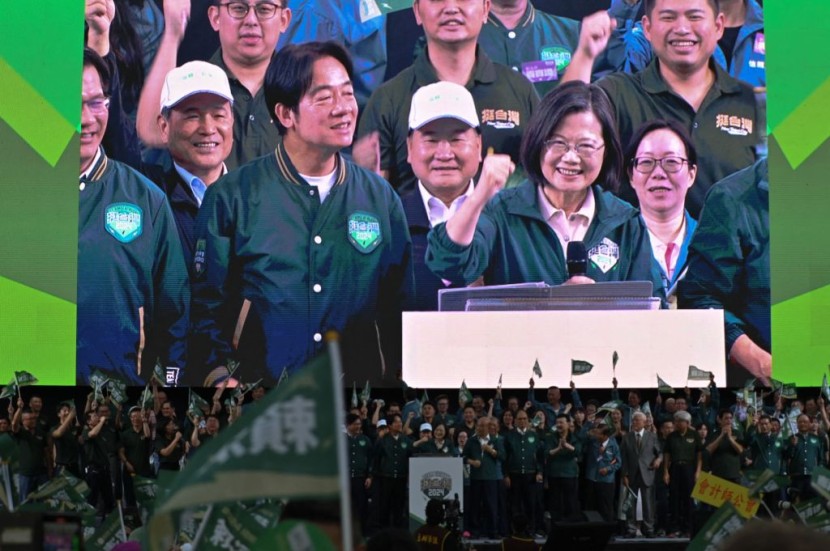As Taiwan braces for a significant presidential election, the island is actively confronting what it alleges to be "communist spies" from China, indicating the profound implications this poll holds for Taipei-Beijing relations.
The shadow game of espionage between Taiwan and China dates back to the ideological split of 1949, which saw the Chinese nationalists establish a rival seat of power in Taipei to counter Mao Zedong's communist regime, as per BBC.
Taiwan Counters Chinese Espionage Amid Rising Military Tensions

Fast forward to recent months, and Taiwan's legal system has been bustling with charges and convictions against espionage, signaling, according to Taiwanese officials, an aggressive and widened espionage campaign from Beijing that has moved beyond targeting military elites.
The conviction of retired Air Force colonel Liu Sheng-shu to two decades behind bars for espionage epitomizes this concerning trend.
Taiwanese security agencies have identified at least 16 suspected spies for China since the year's commencement, a stark contrast to the 44 cases noted from 2013 to 2019 by Taiwan's Ministry of Justice Investigation Bureau.
This uptick in espionage activity aligns ominously with Beijing's increasingly assertive stance towards the self-governed island, not discounting the looming threat of military action to enforce unification-a stance countered by growing US expressions of support for Taiwan.
Beijing's global intelligence ambitions are inflating, particularly aimed at the US, which reciprocates with heightened surveillance of China. Grant Newsham, a retired US Marine Corps colonel with extensive experience in the Indo-Pacific region, comments on Taiwan's vulnerability to Chinese espionage, citing the laxity in espionage penalties and the recent development of stringent information security protocols as potential facilitators for such activities.
Meanwhile, the military posturing continues unabated, with the PLA Navy's aircraft carrier Shandong performing exercises in the Taiwan Strait and the Pacific, stirring further tensions.
China's claim over the Taiwan Strait, contested by Taiwan and the US, underscores the strategic chessboard where these international players are maneuvering, with frequent naval transits by US and allied vessels marking the disputed waters, according to US News.
Taiwan President Upholds Democracy Against Beijing's Pressure
Taiwan, led by President Tsai Ing-wen, remains staunch in its rebuff of Beijing's sovereignty claims, voicing a commitment to safeguard its democratic values and freedom. This stance was echoed at the Taipei Security Dialogue, reflecting on the broader challenge that authoritarian regimes pose to global democracy and order.
In preparation for potential conflicts, Tsai's administration has reinstated mandatory military service and boosted the defense budget substantially to fortify Taiwan's military capabilities. However, as Tsai's pro-independence Democratic Progressive Party maintains closer ties with the US, cross-strait relations continue to fray, with PLA's frequent military drills near Taiwan as a stark reminder of Beijing's unification agenda.
Taiwan faces shrinking international space on the diplomatic front, with Beijing's diplomatic pressure persuading nine countries to shift their allegiance away from Taipei since Tsai's tenure began.
Moreover, Taiwan's exclusion from the World Health Assembly meetings since 2017 highlights the island's continued isolation in global forums, influenced heavily by Beijing's stance on the "One China" policy.
As election day approaches, Taiwan confronts not only the internal decision of leadership but also the external pressure from a dominant China intent on claiming sovereignty over the island. The outcome of these elections will undoubtedly shape the island's future, its international standing, and the precarious balance across the Taiwan Strait, South China Morning Post reported.
Related Article : US Insists Israel To Take Humanitarian Pause, Plans To Rescue Hostages
© 2026 HNGN, All rights reserved. Do not reproduce without permission.








